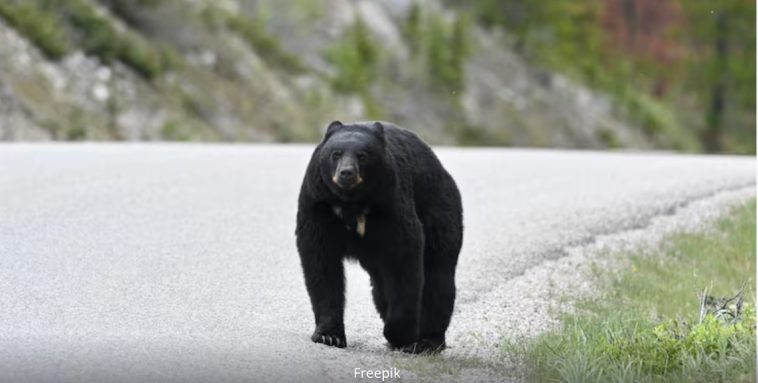🐺 I Was Driving Home When I Saw Something Struggling in the Snow — What Happened Next Changed Everything
The road was silent that evening — just the hum of my tires against the icy asphalt and the soft glow of the sunset melting into the mountains. I had driven this stretch of road a thousand times before, but that night, something felt different. As I rounded a sharp bend, a dark figure caught my attention near the edge of the forest. At first, I thought it was a pile of debris blown by the wind. But then it moved.
When I slowed down and stepped out of my truck, the sight before me made my heart drop. A wolf — a magnificent, wild creature — was tangled in a metal snare, thrashing weakly in the snow. The trap had sliced deep into its leg, leaving it bleeding and exhausted. Every shallow breath seemed like it could be its last.

I wasn’t even supposed to be there. The only reason I knew about the situation was a phone call I had received just minutes earlier from Jake Morrison, a rancher I had known for years. Jake was no friend to wolves. He’d lost livestock to them and had always spoken of them with anger and resentment. But that evening, his voice on the phone was different — shaky, urgent. He had found the animal suffering on the edge of his land and, despite everything, couldn’t leave it to die.
I grabbed my medical bag and drove as fast as the icy roads allowed. Now, standing over the injured wolf, I felt the weight of its fate pressing on my shoulders. Its amber eyes locked with mine, not with rage or fear, but with something else — something almost human.
“Hang on,” I whispered, though I knew it couldn’t understand. “I’m here now.”
With careful precision, I sedated the animal and began to cut away the cruel metal teeth of the snare. The damage was worse than I feared — deep lacerations, tissue damage, and signs of infection. But there was still a chance. I loaded the limp body into my truck and raced to my small clinic, praying every mile that I wasn’t too late.
The surgery took more than four hours. My hands worked tirelessly to repair the torn muscle and bone, to stop the bleeding, to bring the creature back from the brink. Several times I thought it might slip away — but then, finally, its heartbeat steadied. It was going to live.
The following weeks were filled with cautious optimism. The wolf was kept in a quiet, isolated enclosure, far from human contact. I monitored its recovery closely — treating infections, changing bandages, and feeding it carefully. What surprised me most was its behavior. Unlike most wild animals, it didn’t panic or lash out. Instead, it watched me calmly, as though it somehow understood I was trying to help.
Day by day, its strength returned. The limp became a stride. The dullness in its eyes turned into fire. And as the day of release approached, something unexpected happened — Jake visited the clinic. The man who once saw wolves as enemies now stood silently at the fence, watching the creature he had helped save.
“I never thought I’d care about one of them,” he admitted softly. “But I guess we’re all just trying to survive out here.”
Weeks after that fateful night, I drove back to the forest where I had first found the wolf. The snow had melted, and the air was crisp with the promise of spring. As I opened the cage door, the wolf hesitated for just a moment. Then, with one powerful bound, it leapt into the trees — free once more.
I stood there long after it disappeared, feeling a strange mixture of joy and sadness. We would likely never see each other again. But I knew that, in that fleeting connection between human and wild, something had changed — not just for the wolf, but for all of us.
Sometimes, the most powerful stories begin not with a plan, but with a moment of compassion. And sometimes, saving one life can change two.


